Ctrl + C Not Copying? Here’s the Fix!
If you are unable to use the Ctrl + C keys on your keyboard, the issue may be related to your PC settings, including any software you have installed, or directly to your keyboard. If possible, try another keyboard. If the issue disappears when you use the other keyboard, then the keyboard you were using previously is the culprit. You can also check if it’s a malware problem by pressing the Ctrl + Shift + Esc keys together. If the Task Manager does not launch, then malware is the culprit.
A bad driver, incompatible driver, or outdated driver can also result in a frozen Windows key. Listed below are a few effective solutions that can help you get back on track in no time!
Check if the Issue Is Hardware-Related
The first thing that you need to do is check if the problem you are facing is hardware or software-related. Once you determine this, you can proceed with the troubleshooting steps listed below.
- Press Ctrl + Windows + O keys together to open the virtual keyboard.
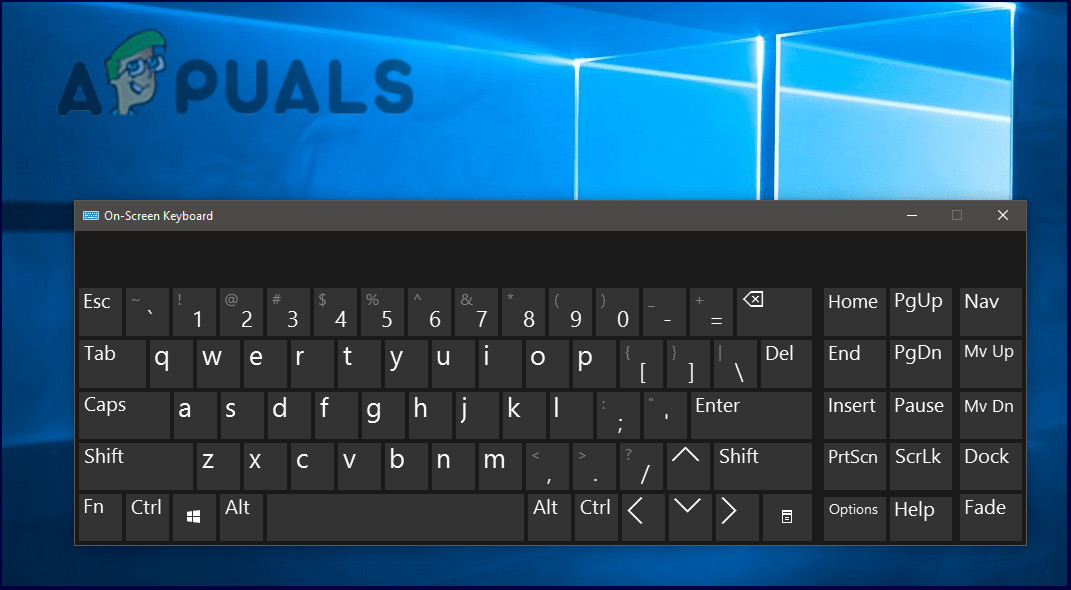
Activate on screen keyboard - Now try using Ctrl + C through the virtual keyboard and check if it works fine.
- It’s probably a hardware problem if you can access it through the virtual keyboard, if not, then the issue is with the system.
If it is a hardware-related problem, we recommend connecting your PC to another keyboard and checking if that works.
Run the Keyboard Troubleshooter
You can begin by using the Windows 10 keyboard troubleshooter if you’re having issues with the Ctrl + C keys. This utility consists of a list of the simplest repair strategies for the most common issues in Windows 10 relating to the keyboard.
If the troubleshooting utility identifies any issues relevant to your situation, it will apply the appropriate fix strategy without much user input. Here are step-by-step instructions on how to do so:
- Press Windows key + R to open up a new Run command.
- Inside the text field of the dialog box, type “ms-settings:troubleshoot” and hit Enter to launch the built-in Troubleshooter.
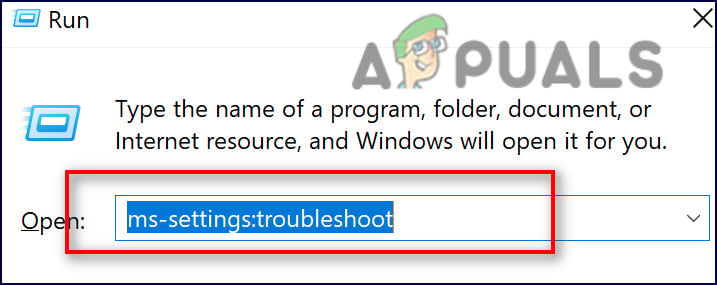
Run ms-settings.troubleshoot - In the Troubleshoot tab, click on Additional troubleshooters.
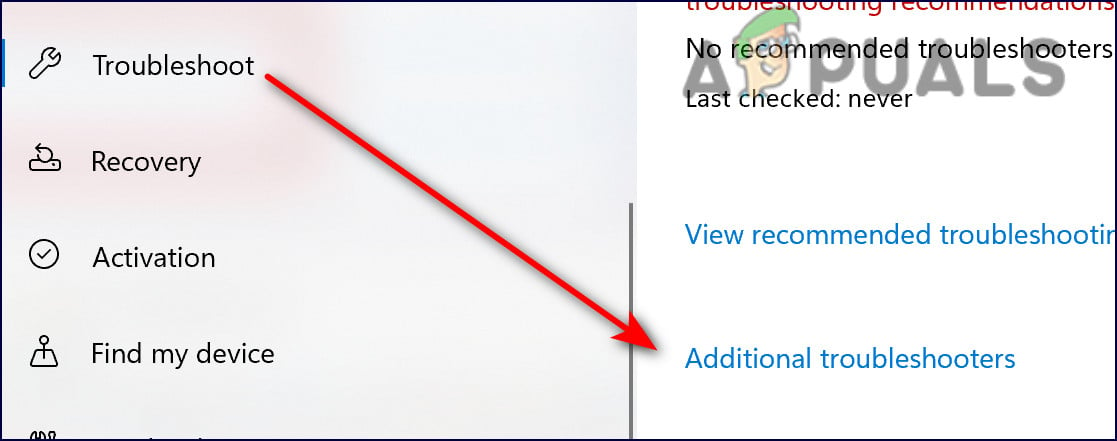
Keyboard troubleshoot - Then, select Keyboard and click on Run the troubleshooter to launch the keyboard utility.
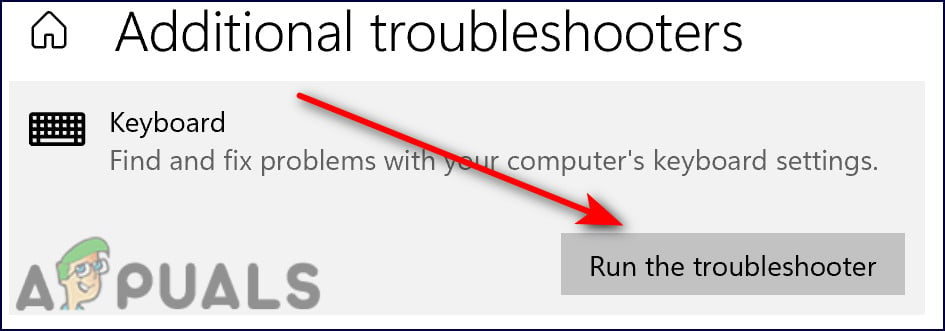
Run keyboard troubleshoot - Wait for the scan to complete. If the troubleshooter finds an issue, click Apply this fix and wait for it to finish.
- Once done, restart your PC and check if the issue related to Ctrl + C is resolved. If you are still experiencing the problem, jump to the next method below.
Reinstall the Keyboard Driver
Windows 10 can also be forced to reinstall the keyboard driver by removing it from Device Manager. This is another popular fix for the issue under consideration. Several users have reported that the Ctrl + C keys issue was automatically resolved after updating the keyboard driver, which is why recommend you give it a shot.
Here is what you need to do:
- Press Windows key + R to open up a Run dialog box.
- Inside the text field of the dialog box, type “devmgmt.msc” and hit Enter to open Device Manager.
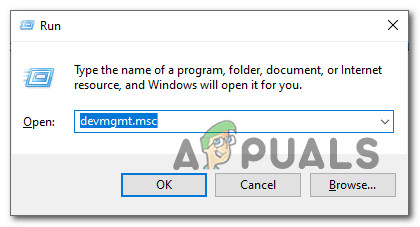
Accessing Device Manager - Within Device Manager, expand the Keyboards drop-down menu.
- Then, right-click on the keyboard driver and choose Uninstall device.
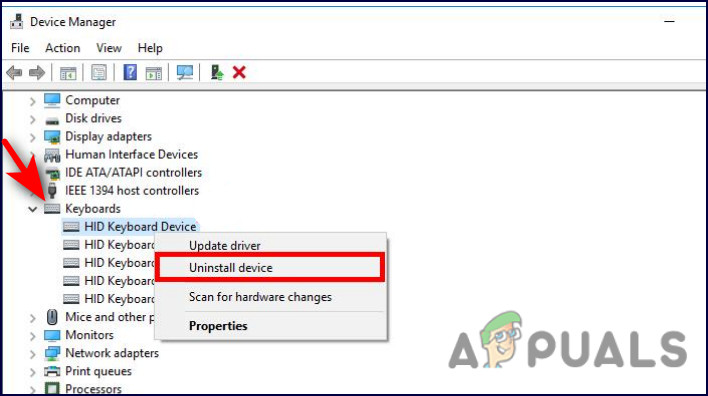
Uninstall keyboard on device manager - To confirm, click Uninstall again. You are very likely to experience the unresponsiveness of your keyboard after clicking the Uninstall button.
- Restart the computer by using your mouse. Upon reboot, Windows will automatically reinstall the keyboard driver and check if the issue is resolved.
Temporarily Disable Antivirus
There are third-party antivirus programs that may interfere with legitimate operating system processes. This is merely a false alarm, and you can fix the problem by disabling your antivirus software.
To temporarily disable your antivirus, follow our step-by-step guide here. You can enable the program back once the issue related to Ctrl + C keys is fixed.
Run SFC and DISM Commands
In many cases, corruption or bugs in the system are responsible for errors such as this.
There are several tools included in Windows that can be used to troubleshoot errors with little or no involvement from the user. The two tools required for this are Deployment Image Servicing and Management (DISM) and System File Checker (SFC). You can use each utility to scan your operating system for errors and fix them automatically.
Here is how you can run SFC and DISM scans on your Windows operating system:
- Type cmd in the search area of your taskbar and click on Run as administrator to launch Command Prompt with administrative privileges.
- Inside the Command Prompt window, type the command mentioned below and hit Enter.
sfc /scannow
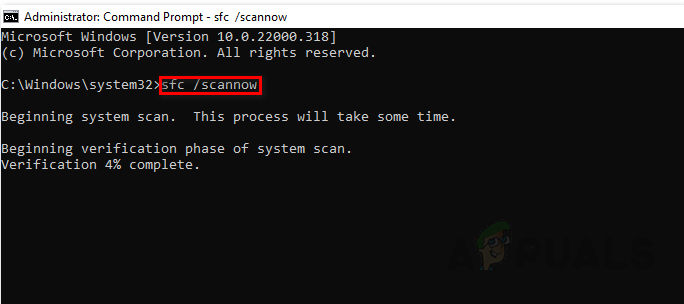
- From the same elevated CMD window, do a DISM scan after the SFC scan (regardless of the results).
DISM /Online /Cleanup-Image /RestoreHealth

Enter the code - Finally, restart your PC and upon reboot, check if you can install the required update.
Perform a Clean Boot
A clean boot state is useful for diagnosing and fixing advanced Windows issues. If neither of the fixes above worked for you, you might want to try starting your computer in safe mode and then using the Ctrl + C keys again. In case the issue does not appear in Safe Mode, then perform a Clean Boot.
- Press Windows + R keys on your keyboard to open a Run dialogue box.
- In the text field of the dialogue box, type msconfig and hit Enter.
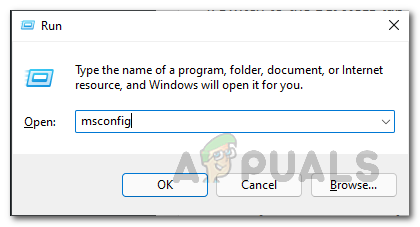
Opening up System Configuration - In the General tab, select Selective startup and uncheck the box against Load startup items.

- Now click on Normal startup and go to Services tab.
- Check the box against Hide all Microsoft services and then click on the Disable all button.
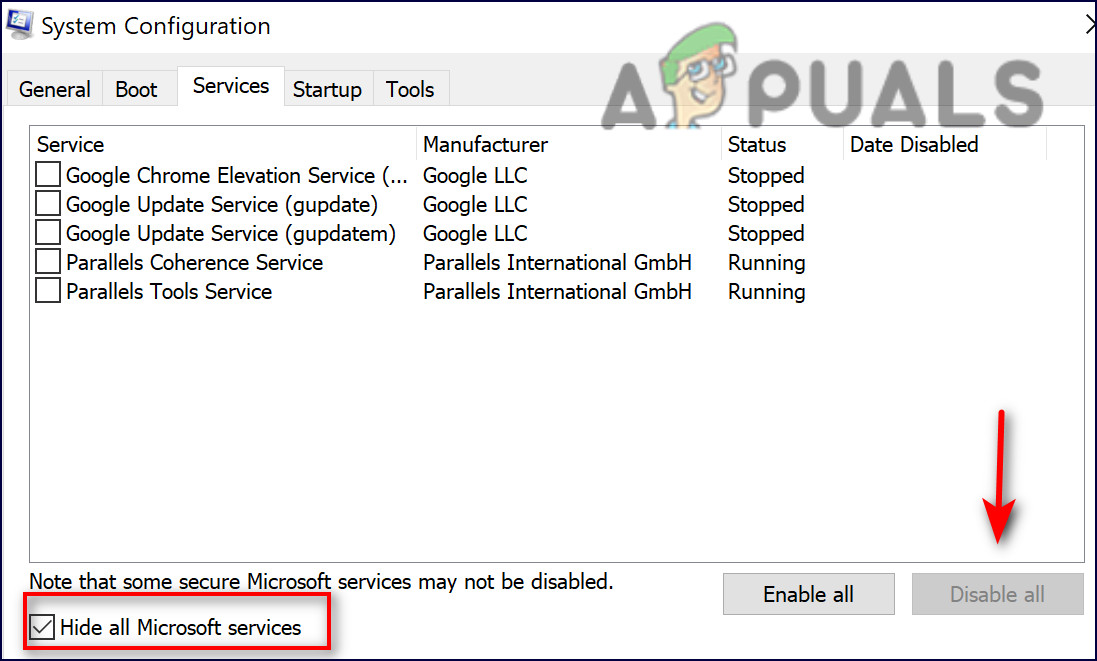
Hide and disable - Hit Apply and then OK.
- Finally, restart your PC and check if the issue with Ctrl + C keys persists.




